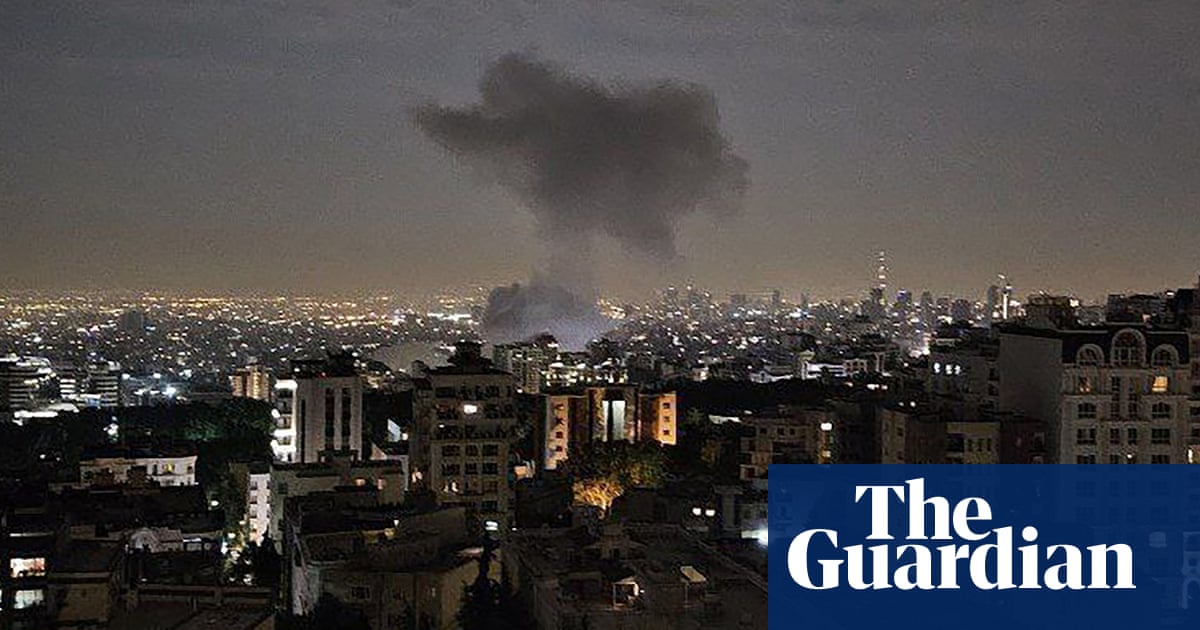Israel haslaunched an attack on Iranaimed at “dozens” of targets including its nuclear facilities, claiming that Tehran had begun to build nuclear warheads.
Israel’s prime minister,Benjamin Netanyahu, said the attack, dubbed Rising Lion, was aimed at “rolling back the Iranian threat to Israel’s very survival”, adding that it would take “many days”.
“We struck at the heart of Iran’s nuclear enrichment program,” Netanyahu said in a recorded televised address. “We struck at the heart of Iran’s nuclear weaponisation program. We targeted Iran’s main enrichment facility in Natanz. We targeted Iran’s leading nuclear scientists working on the Iranian bomb. We also struck at the heart of Iran’s ballistic missile program.”
As explosions were reported in Natanz, Tehran and elsewhere in Iran, theIsraelDefense Forces (IDF) issued a statement saying it had launched “a pre-emptive, precise, combined offensive to strike Iran’s nuclear program”.
“Dozens of [Israeli air force] jets completed the first stage that included strikes on dozens of military targets, including nuclear targets in different areas of Iran,” the statement added.
Justifying the attack, Netanyahu said Iran was not only building up its supply of fissile enriched uranium, claiming it now had enough for nine warheads, but also that it had taken unprecedented steps towards building bombs.
“In recent months, Iran has taken steps that it has never taken before. Steps to weaponise this enriched uranium, and if not stopped, Iran could produce a nuclear weapon in a very short time. It could be a year. It could be within a few months, less than a year.”
The attack on Iran comes a few days before a new round ofUS-Iranian talks were duein Oman, aimed at finding a diplomatic solution to the standoff over Iran’s nuclear programme, which has expanded rapidly since 2018 Donald Trump withdrew from an international deal constraining the programme.
The US president had discouraged Israel from taking military action while the talks were under way, though in the past few days he had expressed pessimism about them. It is unclear whether Washington was given advance warning of Israeli action and whether Trump had given a green light.
Secretary of state Marco Rubio said the US wasnot involved in the strikes. “Tonight, Israel took unilateral action against Iran. We are not involved in strikes against Iran and our top priority is protecting American forces in the region. Israel advised us that they believe this action was necessary for its self-defence.
“President Trump and the administration have taken all necessary steps to protect our forces and remain in close contact with our regional partners. Let me be clear: Iran should not target US interests or personnel.”
In his speech, Netanyahu praised Trump for his efforts to prevent Iran acquiring nuclear weapons, and said Israel was acting in both its own and America’s interest.
